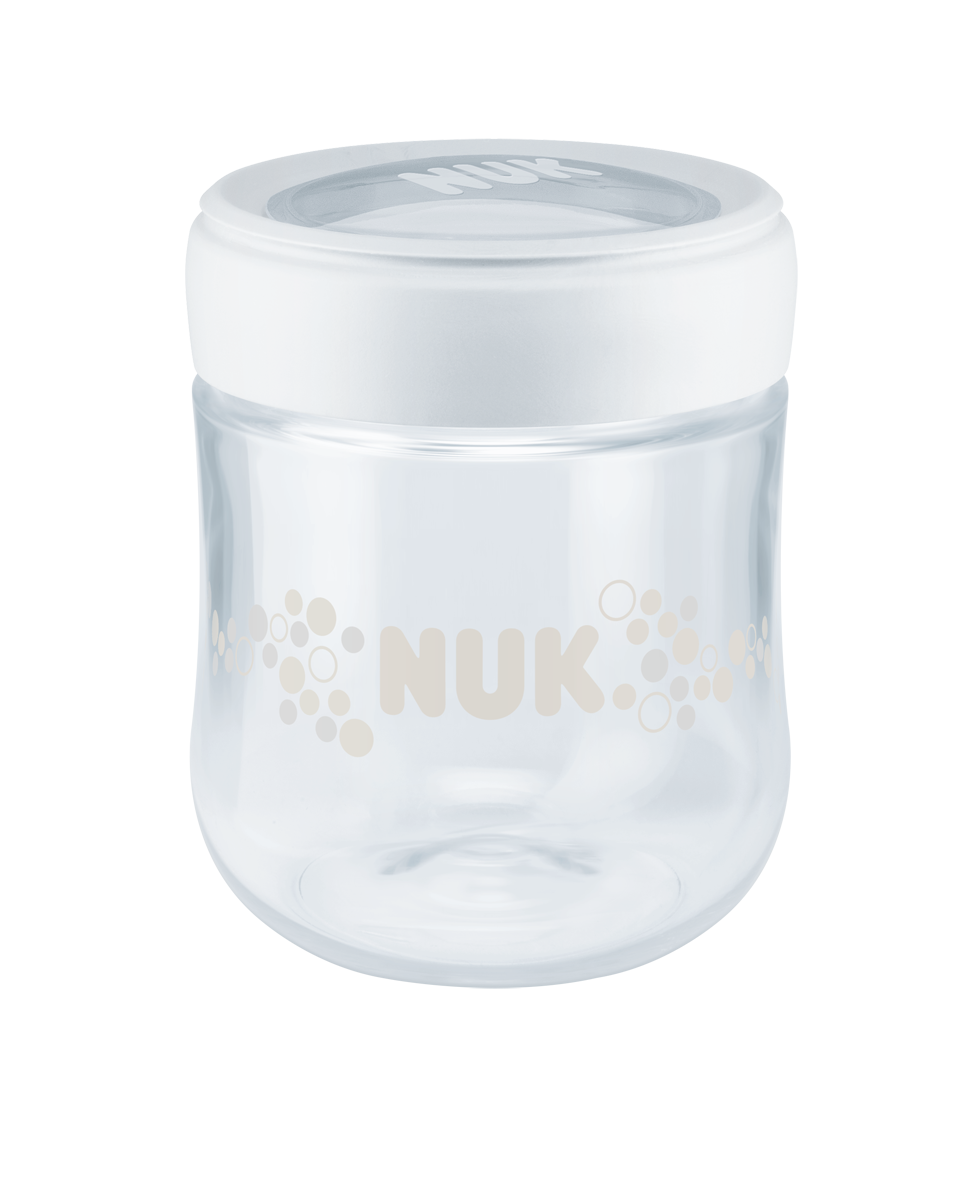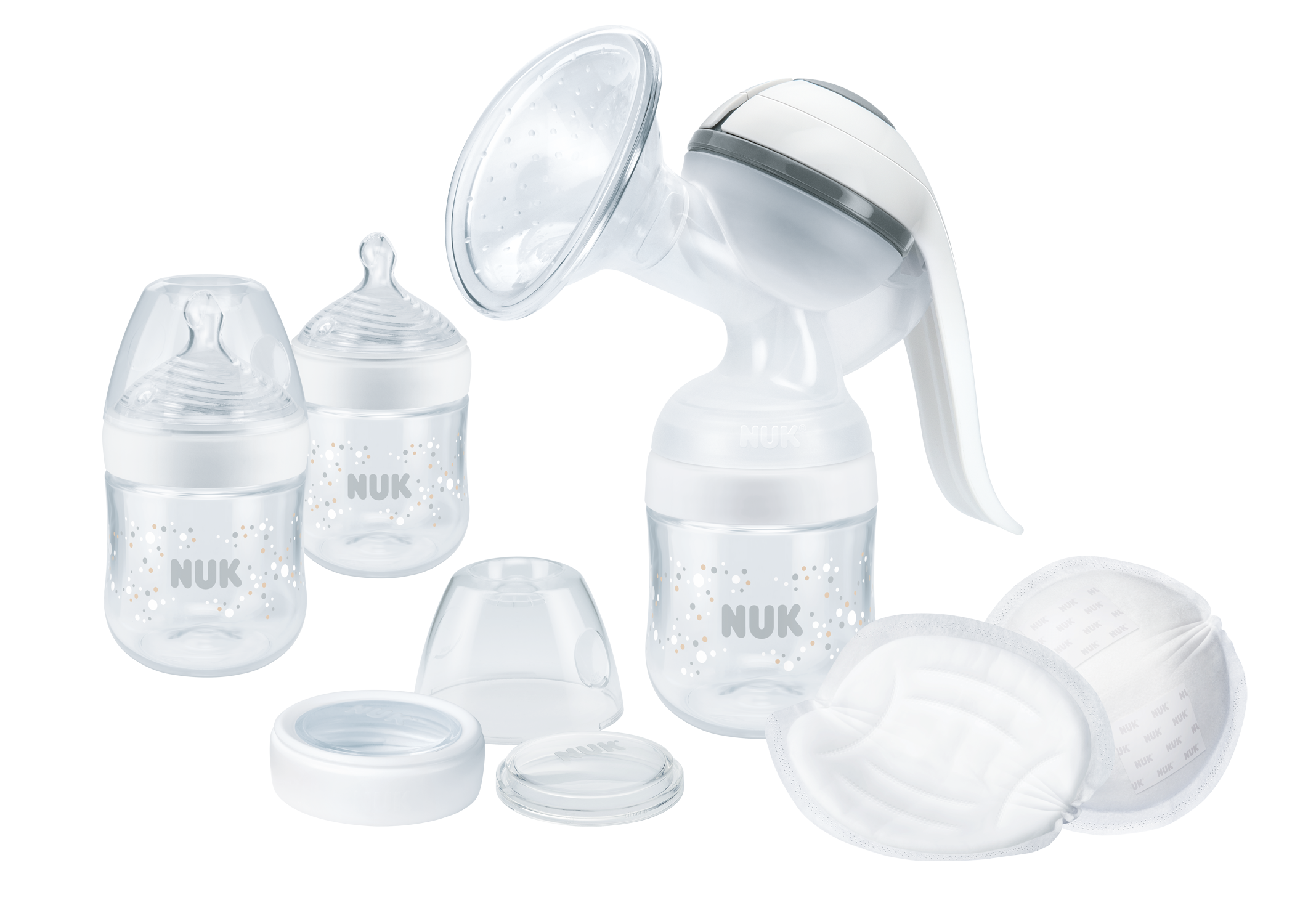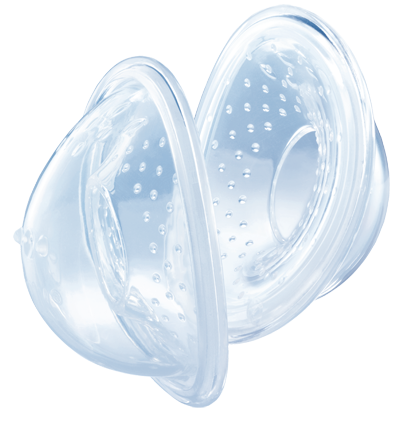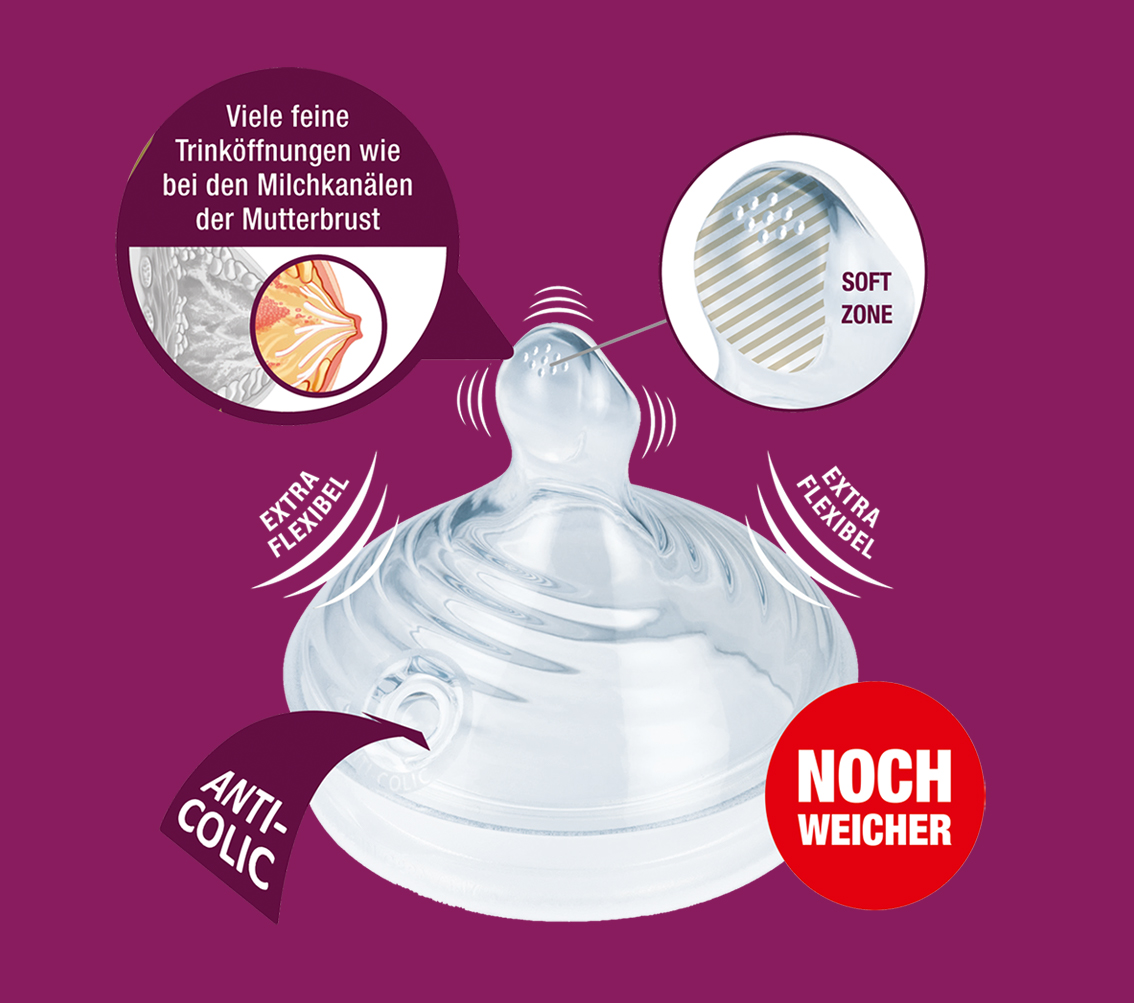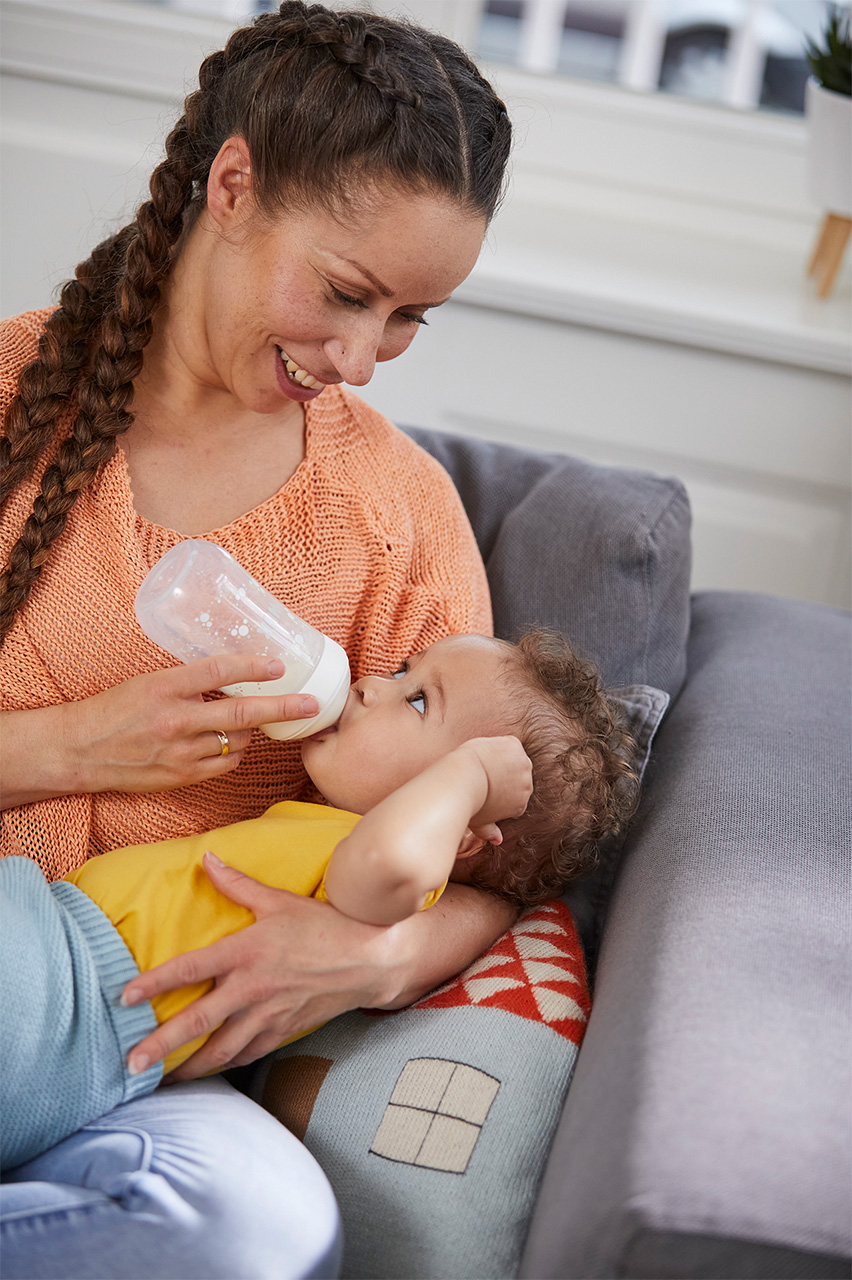
BREASTFEEDING? BOTTLE FEEDING? OR BOTH?
Breast milk gives a baby all the nutrients needed. It also strengthens the immune system and protects against allergies. It is a true superfood - doctors, midwives and the vast majority of parents agree on that.
However, the enthusiasm for breast milk also has its downside. The great social acceptance often turns into social pressure. Or pressure that mothers put on themselves.
Until the baby's feeding goes really well, parents are usually faced with a mountain of questions that are difficult to answer: what is right, what is wrong? Is it also possible to give your baby enough physical contact when you bottle feed? What to do if it doesn't work right away? How do other mothers do it? We, at NUK, listen attentively and, as a partner, want to dispel uncertainties. With good advice and good products.

WHAT IS RIGHT,
WHAT IS WRONG?
Three "feeding stories". Told with simple honesty by two mothers and one father.
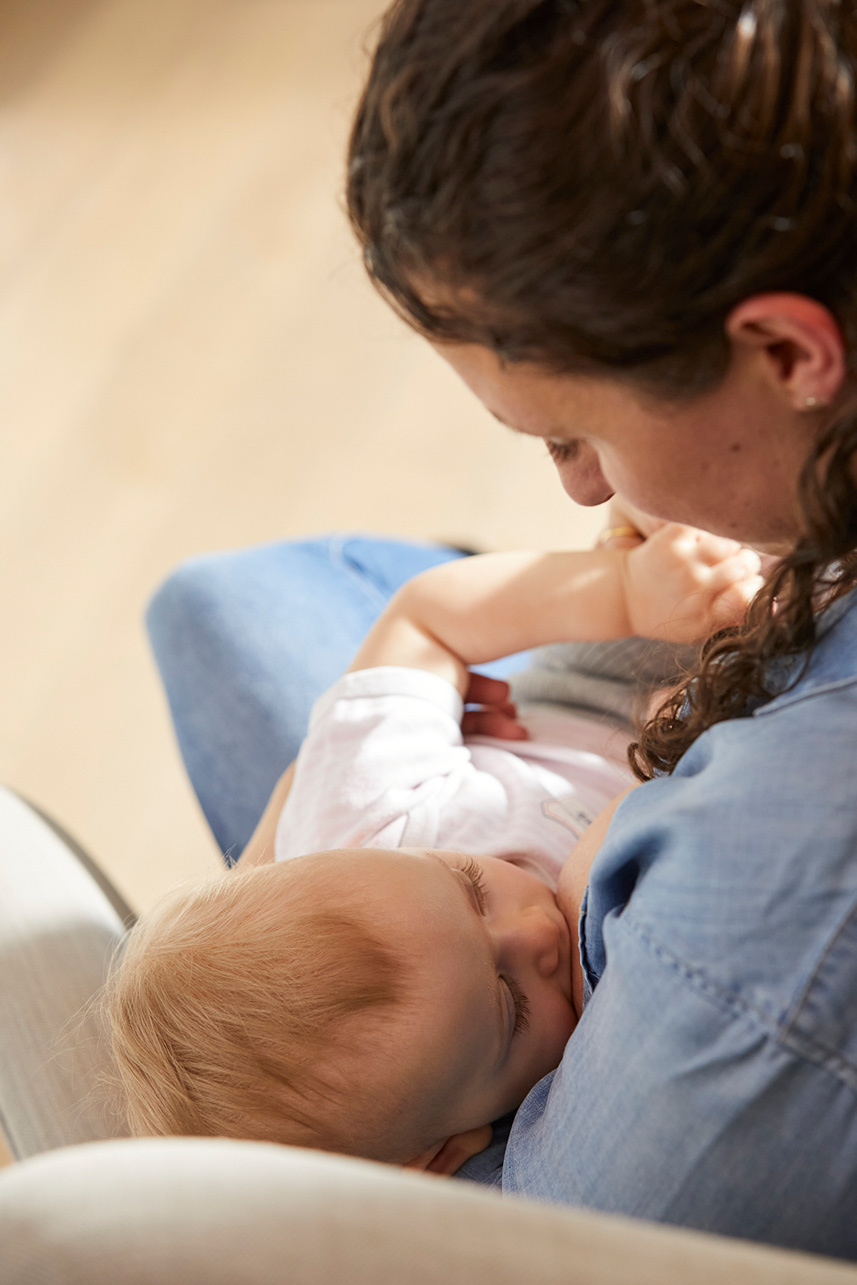
"My two children were given both: breast and bottle. Breastfeeding is great, but also stressful when it doesn't work out so well. For me, it was the amount of milk my body produced. Sometimes too much, which led to congestion, sometimes too little, which meant hours of cluster feeding and expressing.
When I switched to bottle feeding, there was a lot of external pressure. Along the lines of: 'Oh, you're not breastfeeding anymore? Well, I´m sure you must have thought this through ...'. Luckily I had a great midwife who said that a happy mother also has a happy child and that I should trust my gut feeling."

"For my partner and me, there was really no question: of course we're going to breastfeed! But it still didn't work out. Despite help in hospital, despite expressing, the milk flow just didn't get going. Our son was losing weight every day. When our midwife advised us to try bottle feeding and our little one was able to drink his fill, a great weight was lifted from us. In retrospect, it was very fortunate for me as a father. Because in this way I could play a really important part in the feeding of our son - instead of standing idly by.""

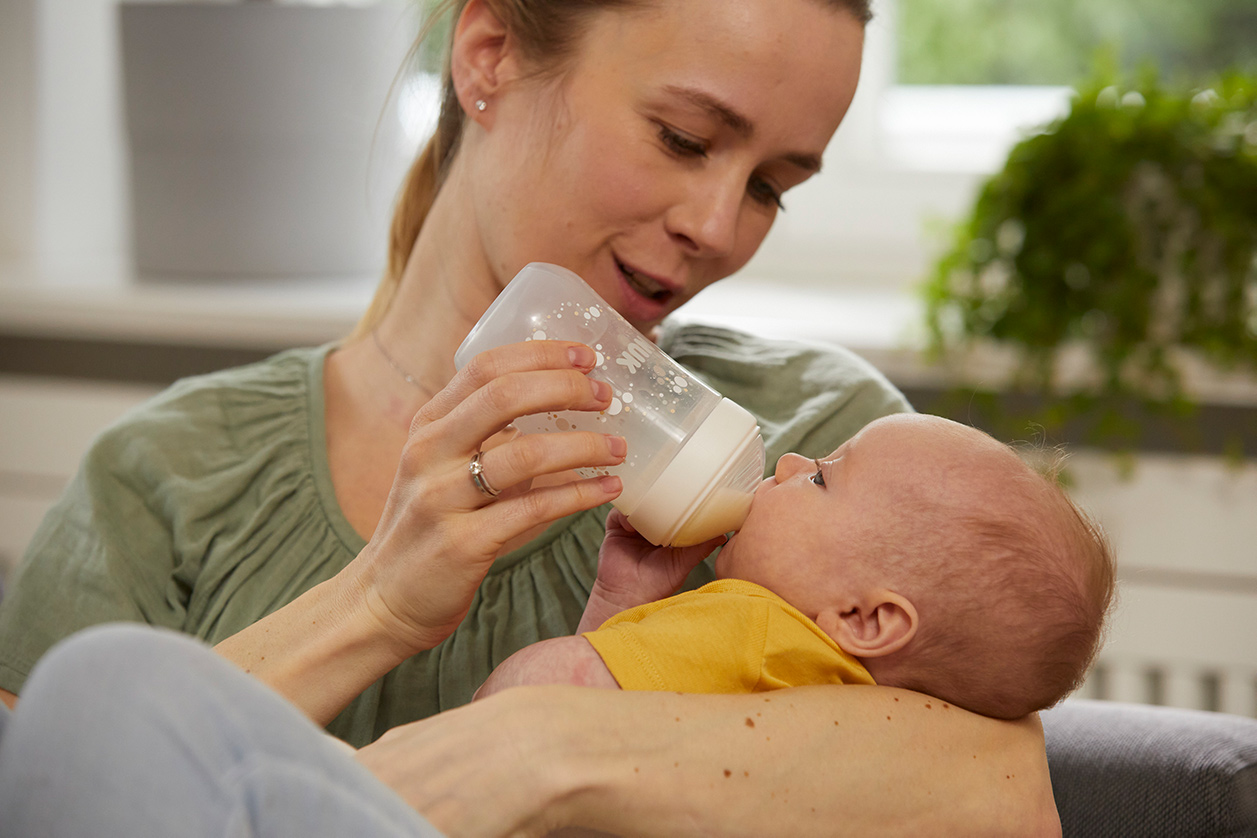
"I was breastfed myself. So were my three siblings. So, that I would breastfeed myself was almost a family tradition ... but that didn’t make it entirely easy. Especially at the beginning, because I had chafed nipples. That's when nipple shields helped me. My midwife gave me the tip. Towards the end, breastfeeding was difficult, because, as a mother you are responsible for it all, alone and around the clock. The pressure to be there all the time ... every day, every night. With a second child, I would try to express too. Then I would have a bit more freedom. And I could share the task with my husband."
WHAT CAN MAKE BREASTFEEDING EASIER?
CAN YOU SHARE ENOUGH CLOSENESS WITH A BOTTLE TOO?
Breastfeeding is so much more than the necessary intake of food. Your baby's little head snuggles up to you. Your soothing heartbeat can be heard clearly. Your warm body provides a comforting feeling and the most intense bond.
But bottle feeding can also be very closely modelled on breastfeeding. Because the deep emotional bond between mother and baby is, to a great extent, also created by the surrounding environment. The time spent together, being close and having physical contact. The intimate moment of feeding. Perceiving with all the senses: seeing, smelling, hearing and feeling each other while your baby tastes and enjoys the meal. All this can also be achieved with a bottle. What’s important here is for the close physical contact to be cosy and comfortable for both of you from the start, while any disturbances are excluded as much as possible.
A nice side effect: while breastfeeding and the closeness that comes with it is reserved for birth mothers, when giving bottles, partners can also build up this kind of bond and enjoy these intense moments with the baby.
With the NUK Nature Sense teat, NUK has succeeded in giving babies a uniquely natural sensation when drinking. In fact, the feeling is so similar to the beloved role model that 92% of babies accept the NUK Nature Sense Baby Bottle without any problems and simply return to breastfeeding afterwards.*
WHAT DO I DO IF BREASTFEEDING DOESN'T WORK RIGHT AWAY?
"Every baby is an individual and every mother's body has its own pace. Sometimes a breastfeeding relationship is established almost automatically and sometimes it takes a little patience. Many mothers then worry that their baby is not being fed adequately. As a breastfeeding counsellor, my job is to reassure and encourage," says Ute Bordiehn, a paediatric nurse and certified lactation consultant (IBCLC) at the Charité hospital in Berlin.
But it is true that the baby needs milk ...
"That's true, of course. However, every child is born with a decent energy reserve. We always say: it comes with a 'backpack'. That's why it's not a problem at all - on the contrary, it's completely normal for a baby to lose weight at the beginning. 10 % of the birth weight is absolutely okay. Until that is used up, there is no need to worry."
So, your first advice is to stay calm. What else would you recommend for building a successful breastfeeding relationship?
"For a start, the baby should be given the breast frequently. This way the little one learns to suckle properly and the mother's milk production is stimulated. And if it still doesn't work out, don't hesitate to seek the advice of a midwife or a certified breastfeeding counsellor."
As a breastfeeding counsellor, what do you say to bottles?
"There is simply nothing better than breast milk. That's why I would advise giving priority to the breast at the beginning. Once the breastfeeding relationship has been established - i.e. the milk flows well and the baby drinks well – in my experience bottles, and soothers too, are then no problem at all.”
But sometimes a baby gets a bottle even before the breastfeeding relationship is established. What should you look out for then?
"To ensure that a bottle interferes as little as possible with breastfeeding, the teat should be one thing above all: very soft. If a newborn gets used to a teat that is too firm and is then put to the breast, their head may keep going back and forth because they’re looking for the teat they’re used to."
The mother's breast and the mother's milk are always the optimum. Convinced of this, we have also developed our NUK Nature Sense bottle - especially for breastfed babies. With a particularly soft teat.
"The closer to the natural example, the better."
Thank you very much for the interview, Ms Bordiehn.

HOW DO OTHERS es DO IT?
In the, sometimes, heated discussions on breastfeeding, you might think it is clear-cut. Right or wrong. However, a look beyond your own country's borders quickly makes it clear: when it comes to breastfeeding, every country is a little different. Some people in this country will smile or shake their heads, but the breastfeeding world map shows one thing for sure: what is considered good and "normal" varies quite a bit.

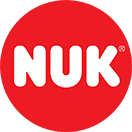
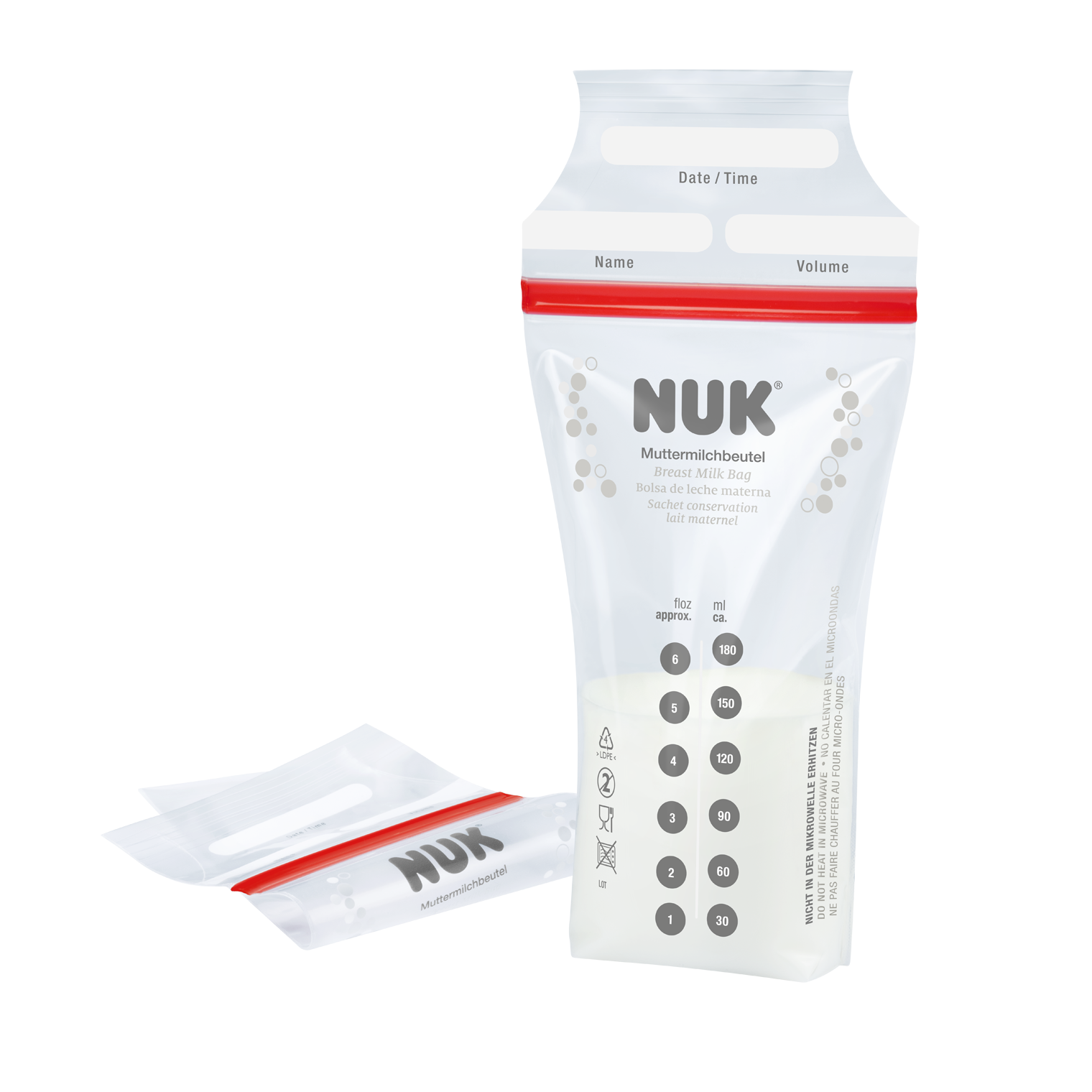
 NUK Breast Milk Bags
NUK Breast Milk Bags